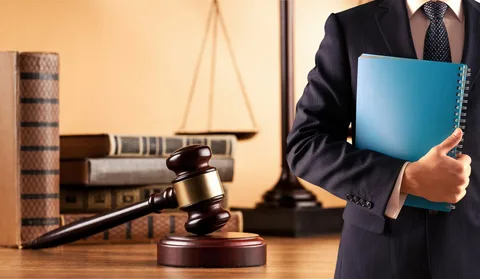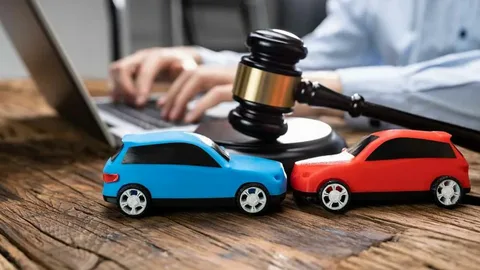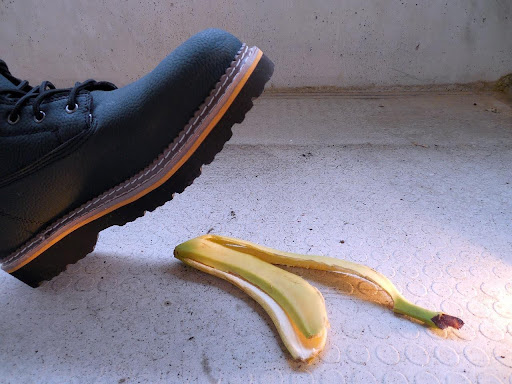Bicycle accidents can be scary. It leave users and others engaged in a state of shock. Knowing what to do after a bike accident can significantly impact your safety, well-being, and legal standing. In this guide, we’ll outline a comprehensive set of actions to take if you are in such a situation. We’ve covered you, from ensuring safety to dealing with insurance companies. Remember, each step is crucial in safeguarding your rights and facilitating a smoother recovery process.
If local laws stipulate it, filing an accident report is crucial . This official documentation further bolsters your case, providing an authoritative account of the incident. It is often a legal obligation, and failing to do so can complicate your efforts to seek compensation. When filing a report, ensure that all details are accurate and comprehensive. Include the events leading up to the accident, the parties involved, and any witness statements. This thorough record will serve as a cornerstone of your case, offering a solid foundation for any subsequent legal proceedings.
Ensure Safety:
In the chaotic aftermath of a bicycle accident, swift action is paramount. If you can, carefully move yourself and any others involved to a safe location away from oncoming traffic. This helps prevent any further harm that may result from vehicles passing too closely. Simultaneously, activate your hazard lights to alert approaching drivers to the situation. Even amid shock and adrenaline, this small yet vital step can significantly reduce the risk of secondary accidents and provide a safer environment for everyone involved.
Check for Injuries:
Immediately after an accident, adrenaline can mask the pain of injuries, making it crucial to conduct a thorough self-assessment. Pay close attention to any signs of trauma, such as pain, swelling, or restricted movement. Additionally, check on others involved, offering assistance if they appear injured. Remember, seemingly minor injuries can escalate if left untreated, so seeking medical attention is imperative. If anyone displays signs of serious injury, do not hesitate to call for emergency medical help. Quick intervention can make a difference in ensuring a full and swift recovery.
Contact the Authorities:
No matter the scale of the accident, involving the police is a critical step. They are trained to handle these situations and will create an official record of the incident. This report not only aids in insurance claims but also serves as a crucial document in any potential legal proceedings. Be sure to provide the officers with accurate and comprehensive accident details. This includes the events leading up to the incident, the parties involved, and any witness accounts. Doing so ensures that all pertinent information is on record, which can be invaluable in the days ahead.
Gather Information:
Exchange information with other parties involved. Obtain names, contact details, license plate numbers, and insurance information. Additionally, note down the names and badge numbers of responding police officers. During the claims investigation, you may rely heavily on this data.
Document the Scene:
Capture the accident scene through photos and videos. Include shots of vehicle damage, road conditions, and traffic signs or signals. These visual records serve as crucial evidence in determining fault and liability.
Seek Medical Attention:
Even if injuries appear minor, seeking medical attention is paramount. It’s possible that certain injuries won’t become apparent right away, and that they could even become worse. A thorough medical evaluation ensures you receive appropriate care and establishes an official record of your injuries.
Notify Your Insurance Company:
Please contact your insurance provider as soon as possible after the accident has occurred. Please include information that is both truthful and honest about the situation. This prompt notification ensures that the claims process can begin promptly.
Preserve Evidence:
Beyond immediate safety measures, preserving evidence is crucial. Document every aspect of the accident, including medical treatment, expenses, and other costs incurred. This includes hospital bills, medication receipts, rehabilitation costs, and even travel expenses for medical appointments. Additionally, keep records of any correspondence with insurance companies. This meticulous documentation serves as a tangible record of your losses . It can significantly strengthen your case, ensuring you receive fair compensation for the physical, emotional, and financial toll the accident has taken on you.
Do Not Admit Fault:
Resisting the urge to admit fault is pivotal to safeguarding your legal standing. After an accident, it’s common for people’s emotions to run high, making it tempting to apologize or take responsibility. Fault finding is a multi-step process that may be affected by many variables; keep this in mind. Prematurely admitting blame might hurt your prospects of being compensated fairly. Instead, it would help if you told the appropriate authorities and your insurance carrier about the incident’s facts. Let them do the required investigation and draw the proper conclusions as to responsibility.
Conclusion:
In situations involving significant injuries or disputes about fault, seeking the counsel of an experienced personal injury attorney is not just advisable but often essential. By taking these measures, you safeguard your well-being and ensure that your rights are protected in the aftermath of such a traumatic event.





